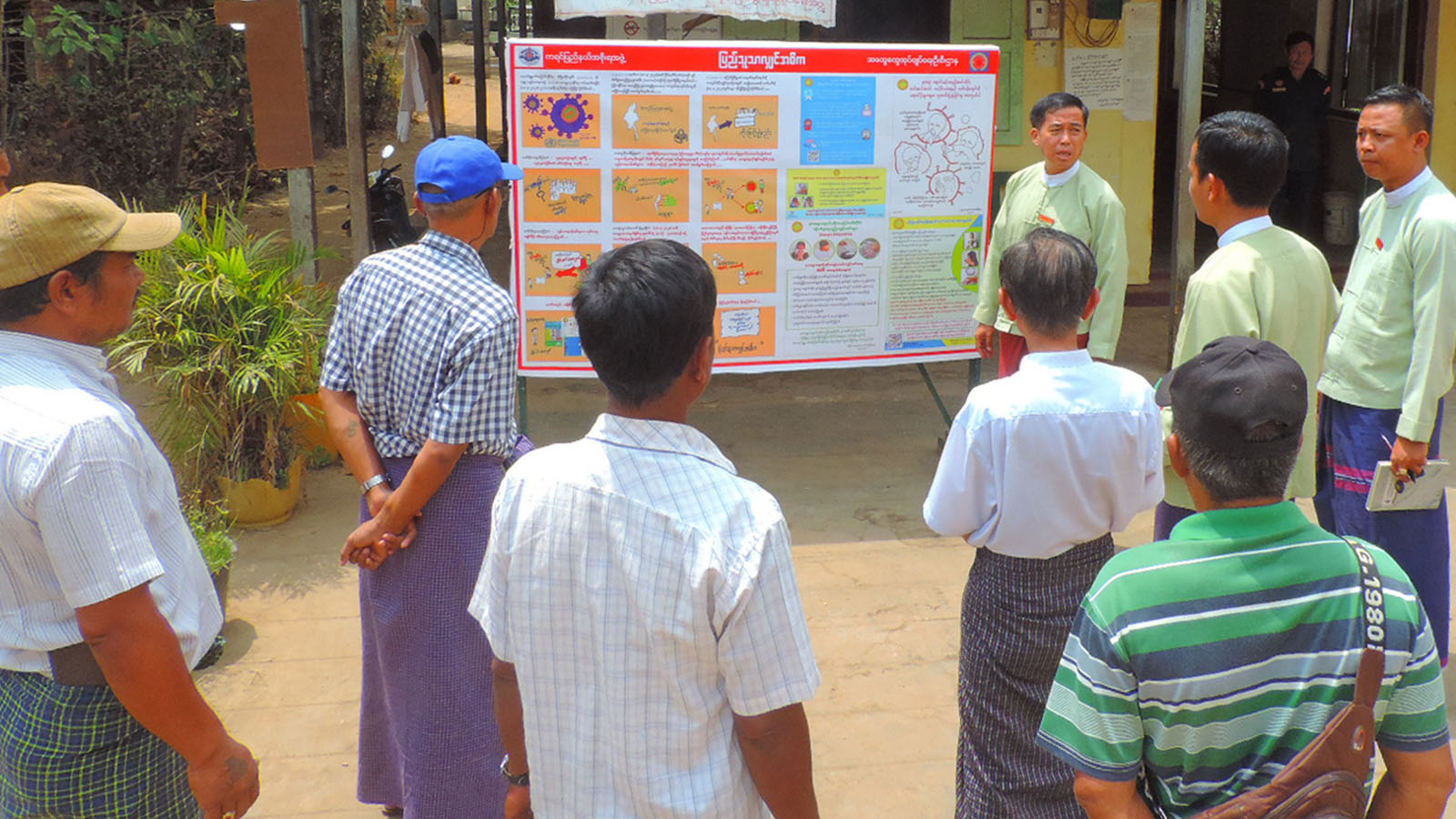22 March
Kayin State in the southeast of Myanmar began its wide-scale COVID-19 prevention awareness campaign on 20 March, with the involvement of the personnel of the General Administration Department.
The campaign covered the work of erecting posters stating the preventive measures against COVID-19, the importance of self-care and personal hygiene, the knowledge about the potential risk of infection and the signs of infection at the crowded places in towns and at villages.
The Kayin State office of the Public Health Department has already been readied itself for monitoring and treating suspected patients at major hospitals and township hospitals.
Major and township hospitals in Kayin State have already made arrangements to put suspected patients under treatment or surveillance. Special care wards at those hospitals are ready to admit any suspect, said Dr Kyaw Swa Myint of Kayin State office of the Public Health Department.
As the long Thingyan (water festival) holidays are drawing nearer, the number of homecoming Myanmar migrant workers from Thailand is increasing day by day. Hence, Kayin State office of the Public Health Department is accelerating its COVID-19 prevention.
As regards the awareness campaign, we have three points. Kayin State has two critical places and one of them is the Myawady border. Besides, people leaving or entering the country through this border usually use Hpa-an as the main stopover point. So, we have been accelerating our preventive measures at those two places. We measure the body temperatures of all the arrivals at Myawady border. Another crucial place is the border at Phaya Thonzu at Kya-in-Seikkyi. We have also made all necessary preparations there, including treatment and administrative functions. But the most important one is the Myawady border. As Thingyan is drawing nearer, the number of homecoming migrant workers is between 8,000 and 10,000 daily. As the Bridge (1) has already been shut down, they are coming back home from Bridge (2). We are checking and educating the returnees and have made arrangement for prevention, monitoring and treatment under the directives of the Union Minister for Health and Sports. We take a list of the arrivals and measure their body temperatures. Our campaign needs wider public involvement, said Dr Kyaw Swa Myint.
The best way is to stay put at home. Travelling is not good at this time, even in the country, let alone a foreign trip. Home is the safest place for returnees, and they should take care of their health. If someone has a fever, he should immediately inform the respective authorities. All should stay away from making visits to other places or joining the crowds. They should stay put at their home for at least two weeks after their arrival. That will be the safest way for them and others, he added.—Min Thit (MNA) (Translated by TMT)


